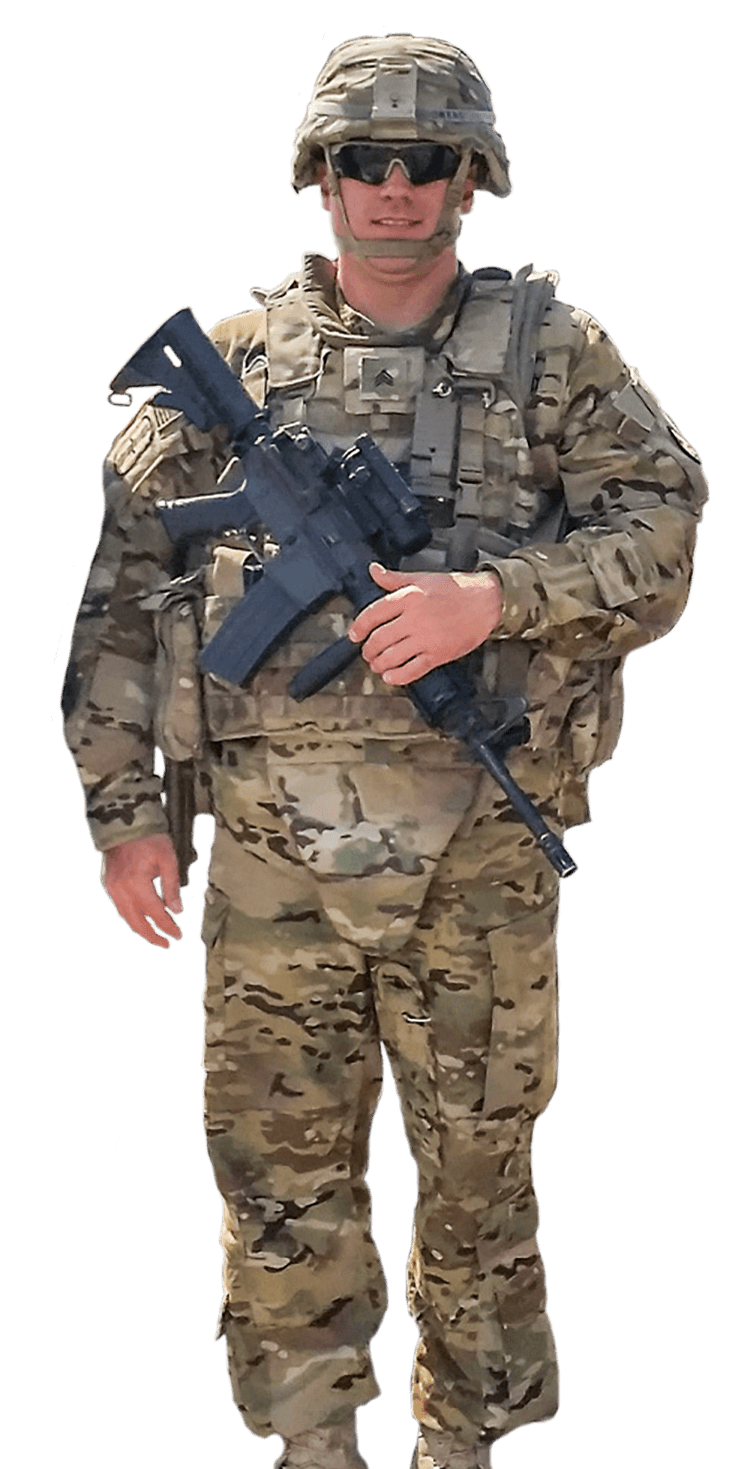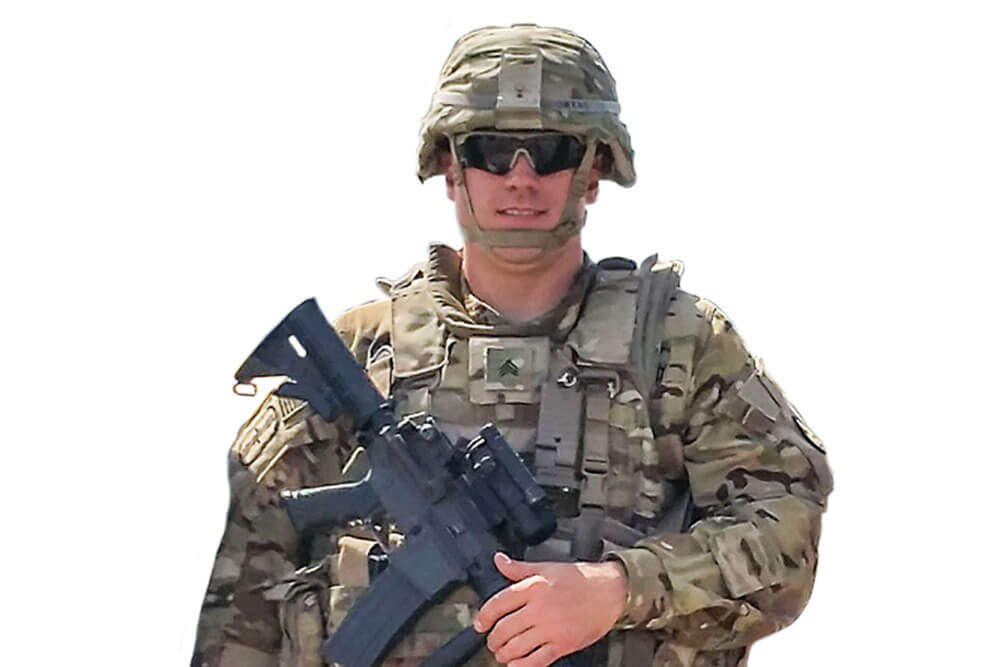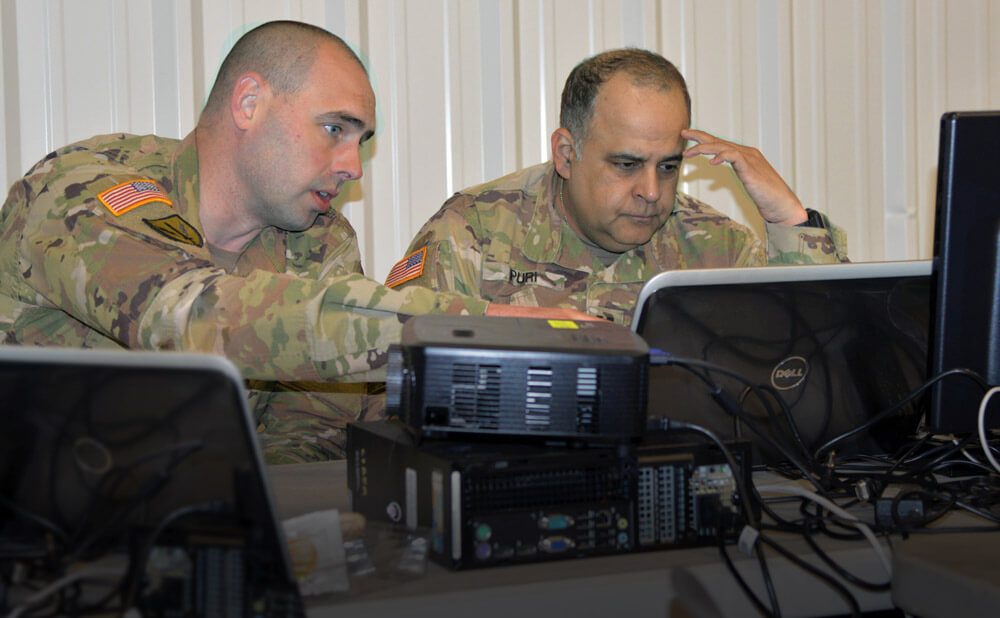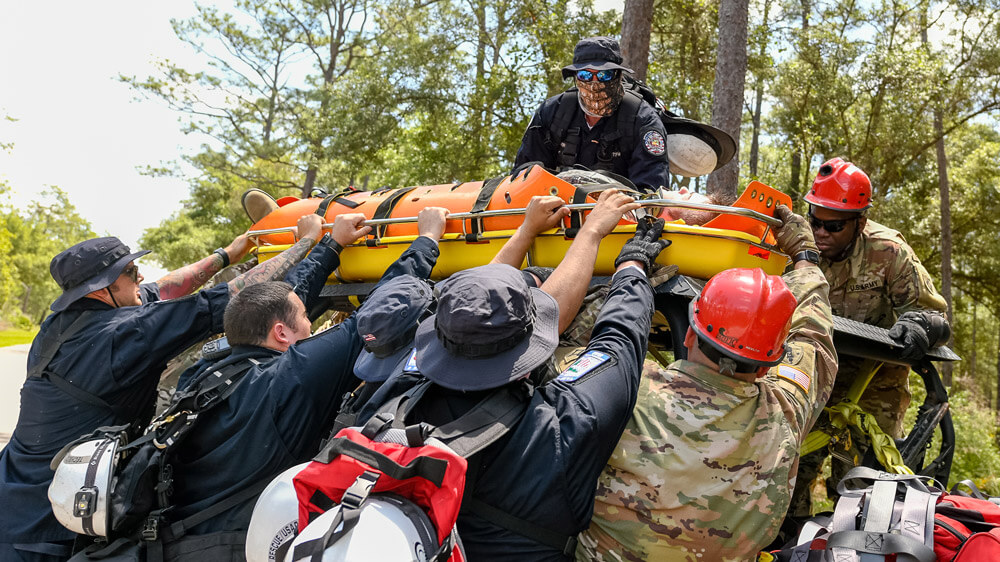Being at the right place at the right time with the proper training can make the difference between life and death. Just ask SSG Bradley Owens, a combat medic with the West Virginia Army National Guard (WVARNG), Company C, 2-104th General Support Aviation Battalion.
Late in the evening of April 12, SSG Owens was leaving the Williamstown armory near Parkersburg, West Virginia, after completing a training mission when he and two other Guard members witnessed a single-vehicle accident.
“We had finished our training for the night and were heading into town to grab a bite to eat,” SSG Owens said. “A vehicle drove off the interstate and landed in a ditch right in front of us. Debris from the accident hit one of our vehicles.”
SSG Owens immediately put his combat medic training to work.
Upon approaching the vehicle, SSG Owens sized up the scene and determined there was one individual, the driver, in the vehicle. He introduced himself and began doing a medical assessment to see how injured the driver might be.
“The driver was conscious and able to speak to me,” stated SSG Owens. “I asked one of my fellow Guard members to call 911 and the other to grab my medic bag from my vehicle. I was happy that there appeared to be no serious external injuries to the victim. The driver seemed stable, and it looked like he was no worse for wear.”
According to SSG Owens, a few minutes later the driver lost consciousness, became unresponsive to painful stimuli and stopped breathing on his own.
“When he suddenly lost consciousness, I began to suspect that he had a significant head bleed or that he was under the influence of some toxin,” said SSG Owens. “As his respirations slowed, I was concerned that he would stop breathing altogether. I knew that I had to act in order to protect his brain from further injury.”
SSG Owens opened the driver’s airway by executing a jaw thrust maneuver, then inserted a nasopharyngeal adjunct to secure the airway. He then applied a bag valve mask (BVM) and began squeezing the football-shaped device to breathe for the victim. He stabilized the driver’s spine to limit or prevent any possible damage and waited for first responders to arrive.

Once first responders were on-scene, SSG Owens gave them his assessment and treatment briefing, assisted them in extracting the patient from the vehicle and then relinquished medical control.
Happily, the driver was safely transported to a local hospital, arriving in stable condition.
“I believe very strongly that the National Guard is uniquely situated to help our citizens during times of crisis or natural hazard,” stated SSG Owens. “I joined the WVARNG because I felt a strong sense of patriotism and duty. Because of my love and passion for the emergency medical field, becoming a combat medic was the natural best way for me to serve my Nation and my fellow West Virginians.”
“I am very happy my fellow Guardsmen and I were able to help the driver avoid serious injury,” said SSG Owens. “I think WVARNG members, regardless of their MOS [Military Occupational Specialty], are always ready to serve and assist those in need. Mostly, I’m just happy that we were there at the right place at the right moment and were able to facilitate a positive outcome.”
BY Edwin Wriston, West Vriginia National Guard



